Written by guest blogger, Elena Cremonese, Archives Technician
If you had told me a few years ago that I would have passionate feelings about meeting minutes, I don’t think I would have believed you. I probably couldn’t have given you an accurate description of what City Council meetings look like, or had any sense of what a vast array of meeting minutes there can be—city councils, committees, activist groups, working groups, and on and on.
Since beginning work at the Archives in 2019, my appreciation for meeting minutes has become both practical and personal. The practical is pretty straightforward: Council minutes are a great first place to start if you are trying to figure out what past governments have gotten up to. This applies to development agreements, street naming, policy decisions, zoning issues, and so on.
Now searchable
As part of a project funded through Communities, Culture, and Heritage Provincial Archival Development Program, all of the Council minutes for the former municipalities of Halifax County, Dartmouth, Bedford, and the City of Halifax were digitized and made available on the Archives’ website. The indexes and minutes are both searchable online, opens a new window.
Though this is still a work in progress as we hope to continue to enhance searchability and legibility, it does mean that anyone can search all pre-amalgamation (April 1, 1996) council minutes from anywhere.
Practical uses
Minutes are important to understanding not only what decisions municipal governments made in the past, but also why these decisions were made, and any supporting documentation that contributed to the process, including staff reports, correspondence, citizen petitions, and more. For instance, many key decisions made regarding the Africville Relocation Program, as it was referred to by the City of Halifax, are included in Council minutes, opens a new window, from development of the City Plan through to the purchase and expropriation of homes and properties in Africville in the 1960s.
There’s usually a lot of detail in the minutes from Public Hearings, including the discussion from members of the public presenting to Council.
My personal fascination
As for my personal fascination, there are some real gems in Council discussions. I’ve turned to the minutes to try to answer all sorts of weird and wonderful questions from researchers—as well as to satisfy curious musings from friends and coworkers—and I am always delighted when something useful turns up.
Early on in my time at the Archives, a researcher asked if there had ever been a circus on the Halifax Common, specifically in 1912 —though if I recall correctly, 1911 or 1913 would have been acceptable as well. (Unrelated but still sort of on topic, I’ve also turned to the minutes for questions about monkeys in the Public Gardens and elephants buried in the City Dump – alas, no luck.) The circus search, on the other hand, was successful! I was able to inform the researcher that on June 8, 1912, the Gardens Commission agreed to lease part of the Halifax Common to Col. Francis Ferari’s Trained Wild Animal Arena for 6 days beginning on July 1. Predictably this led me down a rabbit hole of learning more about Colonel Francis Ferari, because who could help it when coming across a name like that? Sometimes when I walk through the Halifax Common I try to imagine what it would have looked like to attend the Trained Wild Animal Arena.
The other reason I have a personal fascination with some of the older Council minutes is because the level of detail included shows a real back-and-forth in discussion between aldermen, the mayor, and staff such as the City Manager and City Solicitor. In fact, in trying to find appropriate examples of these types of discussions, I found this excellent excerpt from the City of Halifax Council minutes from 1958, in which an Alderman raises the issue of how minutes are taken, and the potential issues included.
At times the minutes show outright arguments, and other times they just feel a bit tense, like the example below, where a County Councillor made some contentious remarks which were published in a newspaper, much to the ire of other Councillors.
In today’s Council minutes, an account of this exchange would likely be much more sparse, and focused on any applicable motions, rather than this type of back-and-forth.
Submissions to Council are sometimes included in the minutes, particularly in earlier printings, where letters from staff and the public are included in full in the minutes themselves. In other cases, submissions are kept separately, and have not been digitized – you should always reach out to the Archives as submissions to Council often contain important background to issues.
When it comes time to dive into the submissions, a lot of it can be pretty standard fare, including a lot of staff reports (very useful!) and correspondence regarding staff reports (also useful!). I have, however, found some great doodles on various report packages, indicating that perhaps a councillor was a bit distracted at Council that day. (Alas, I haven’t been able to find them again!)
I have also often found original shorthand meeting minutes in the submissions packets, which always look at first glance like some alien language. I am impressed by the thickness of the legal pads of shorthand, and try to imagine the person who diligently took the notes. Given how many of us rely on our computers, tablets, and phones for so many different forms of note-taking and record-keeping today, it’s a fun reminder of how times have changed.
Over time, meeting minutes for council sessions, as well as boards and committees, have become much more sparse. Since the meetings are recorded, there’s less need for detail in the written minutes, as those conversations – and occasional heated discussions—are recorded in audio and visual format instead. Still, there’s something about seeing the way those conversations were interpreted by the minute-taker that I will always enjoy, and I continue to delight in the surprises that turn up in Council minute searches.

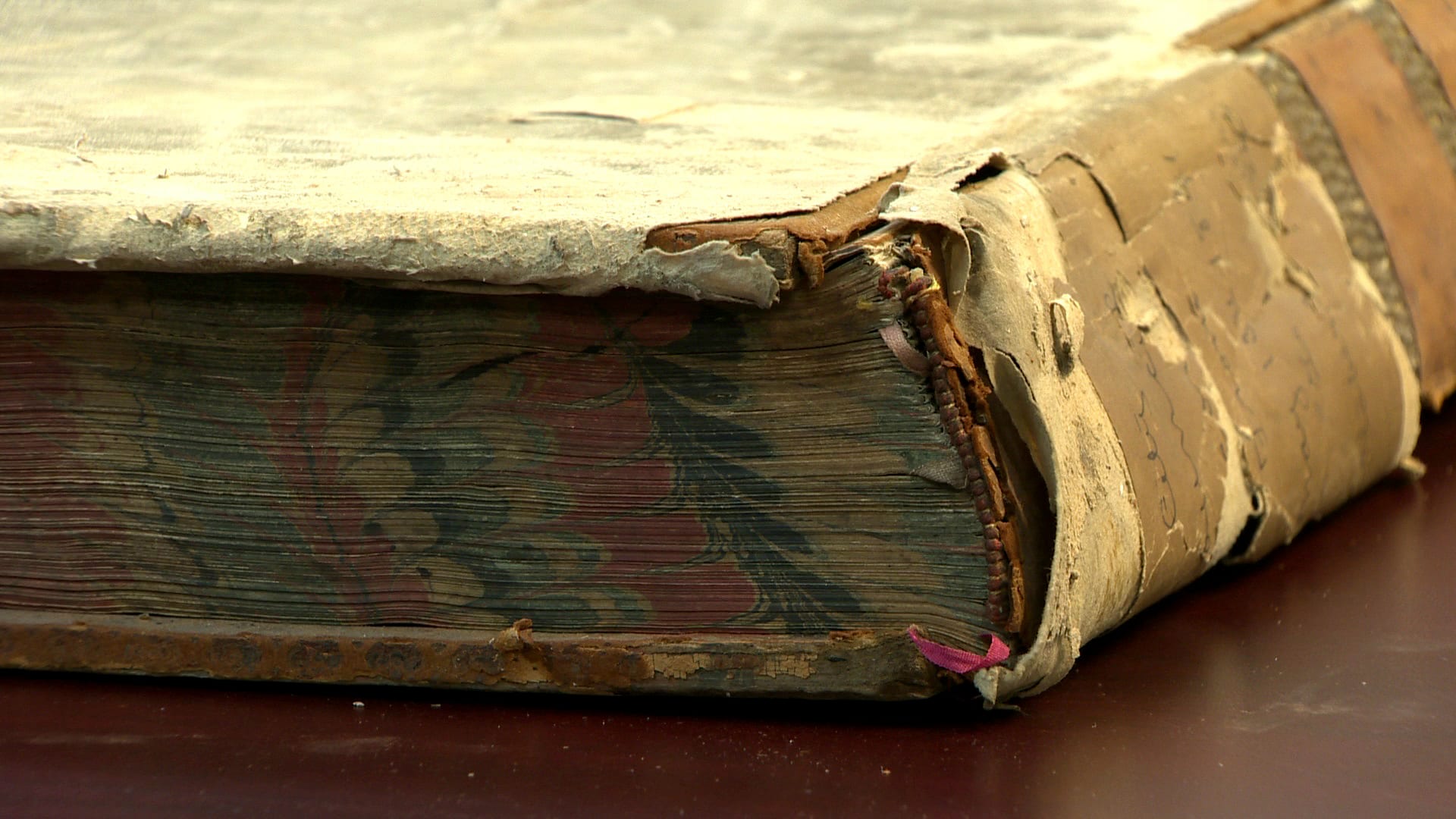

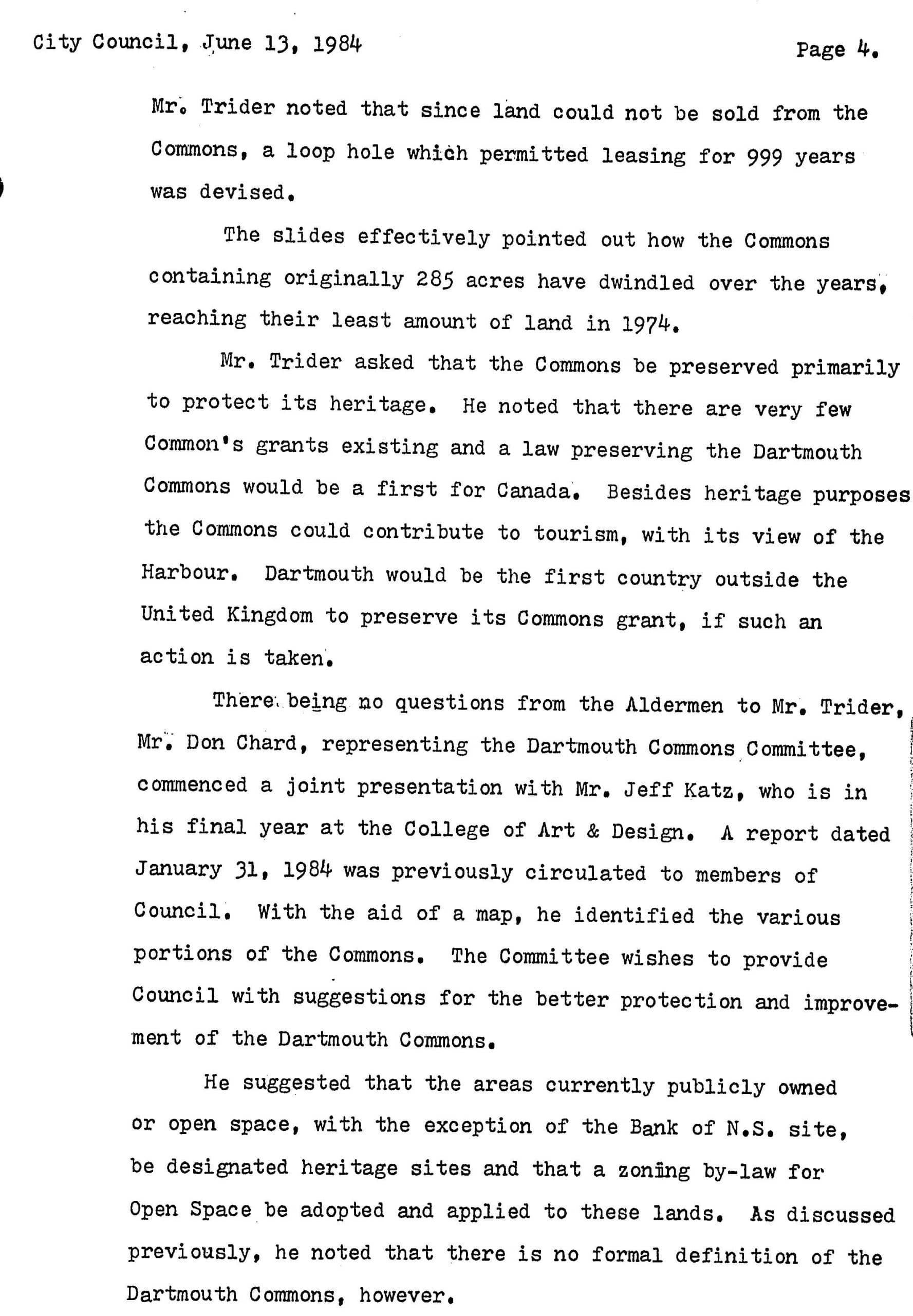
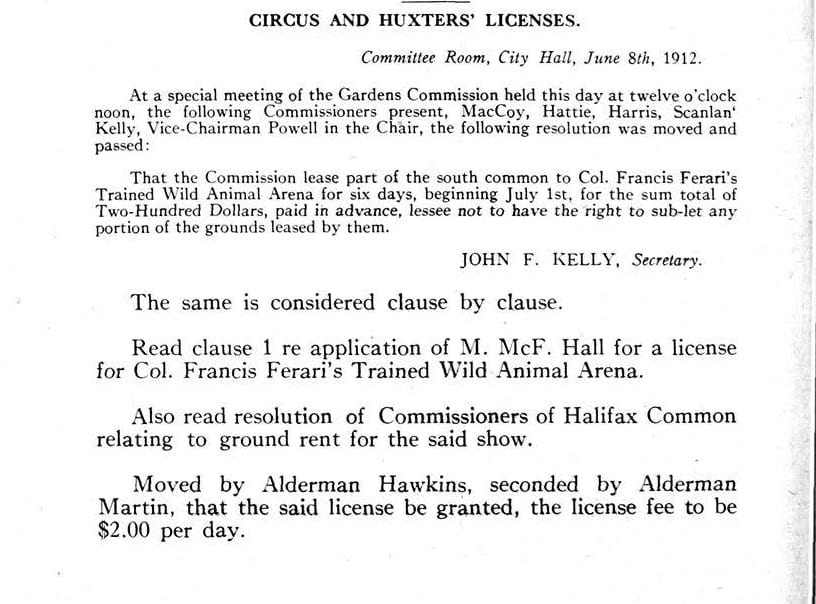
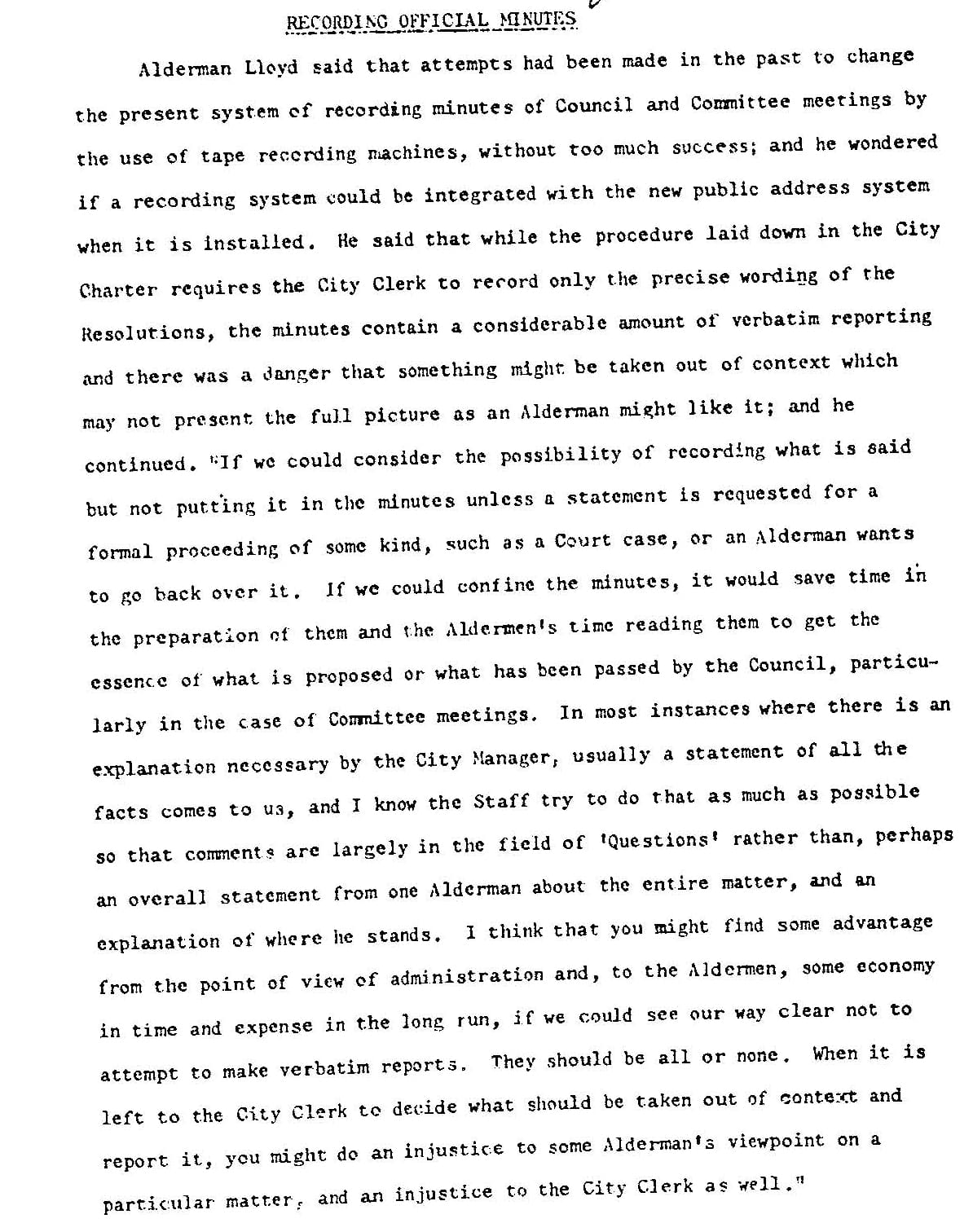
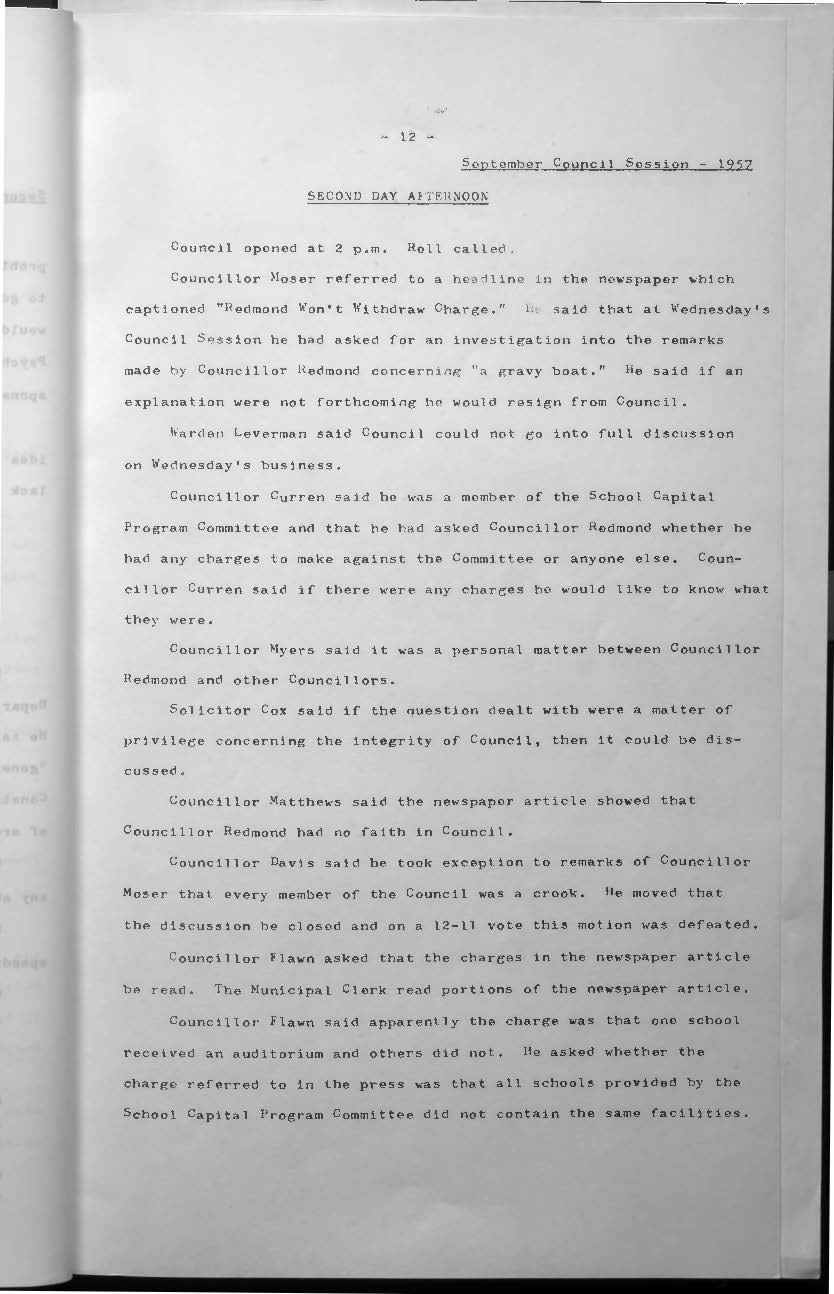

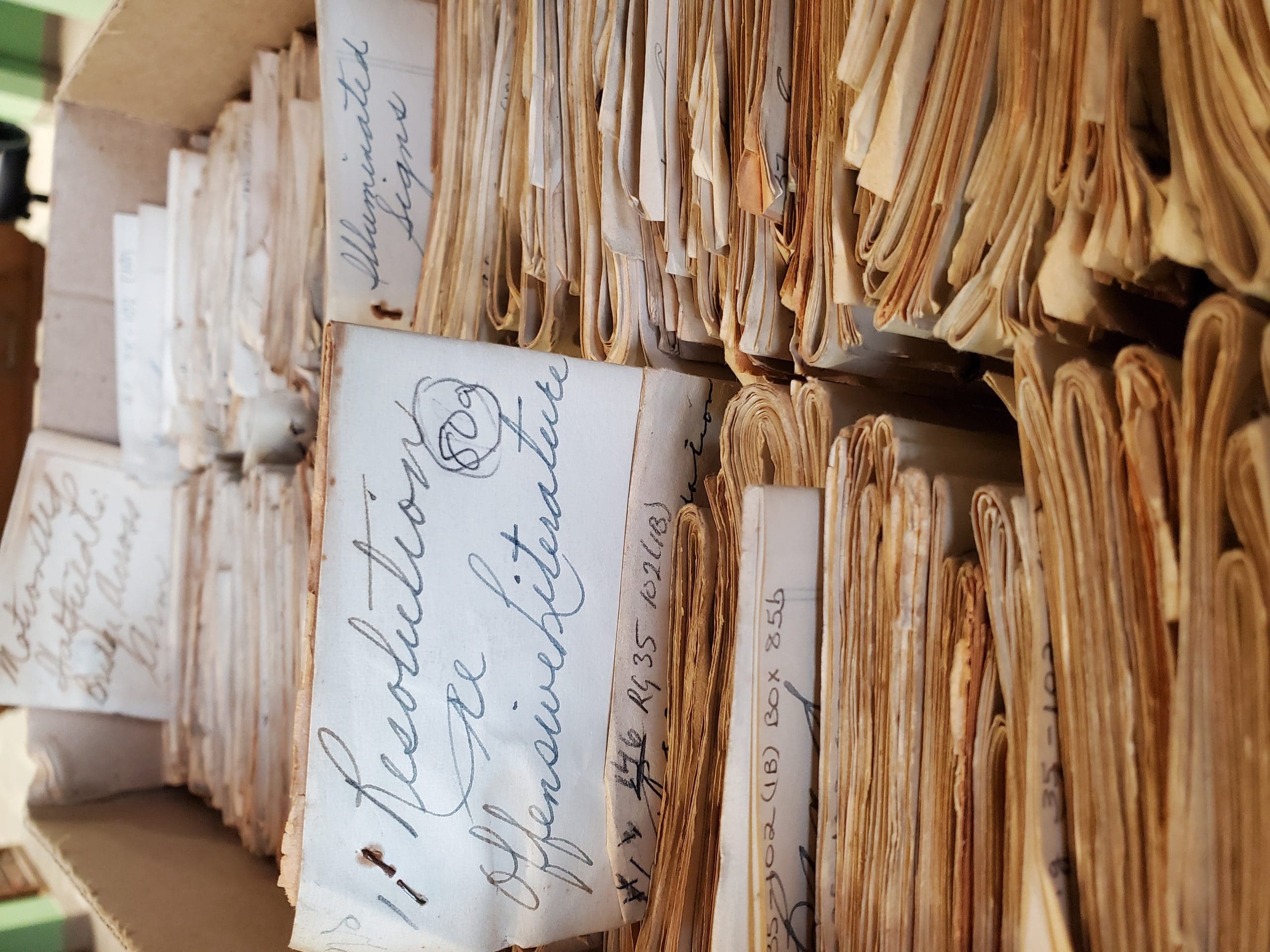
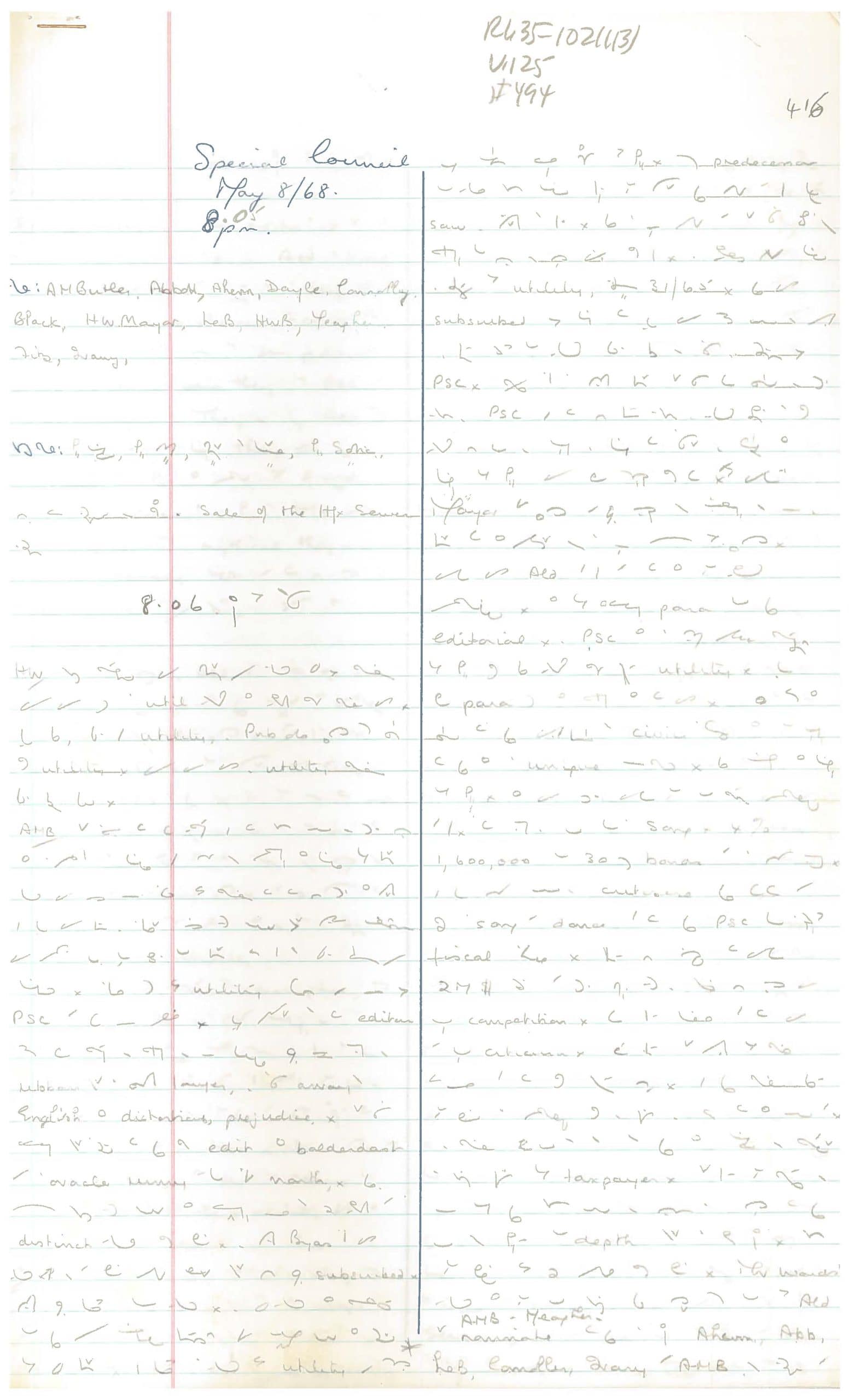

Add a comment to: Halifax Municipal Archives: Meeting Minutes – They Don’t Write Them Like They Used To!